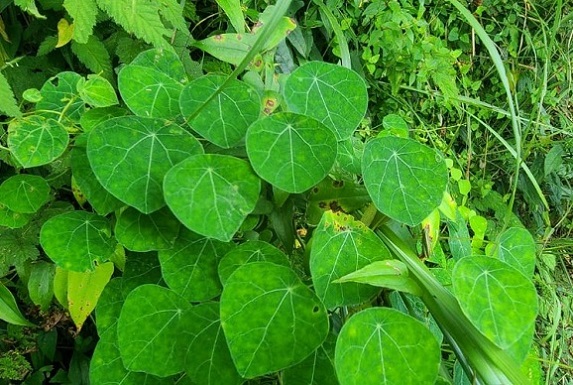The Phytochemical Cepharanthine from the Stephania Cepharantha Plants Shows Promise Against Cervical Cancer
Nikhil Prasad Fact checked by:Thailand Medical News Team Nov 03, 2025 3 months, 1 week, 3 days, 20 hours, 16 minutes ago
Medical News: A Traditional Plant Compound with Modern Cancer Fighting Power
Researchers from Changhua Christian Hospital, Chung Shan Medical University, Kaohsiung Medical University, and National Chung Hsing University in Taiwan have discovered that a natural compound called cepharanthine—derived from the plant Stephania cepharantha—can effectively stop the growth of cervical cancer cells. Their work shows that this traditional medicine ingredient, long used in Japan for treating inflammation and hair loss, might be a new hope for fighting one of the deadliest cancers in women worldwide. According to this
Medical News report, the study focused on how cepharanthine works at the cellular and molecular level to destroy cancer cells and reduce tumor growth.
 The Phytochemical Cepharanthine from the Stephania Cepharantha Plants Shows Promise Against Cervical Cancer
How Cepharanthine Destroys Cancer Cells
The Phytochemical Cepharanthine from the Stephania Cepharantha Plants Shows Promise Against Cervical Cancer
How Cepharanthine Destroys Cancer Cells
The researchers studied three types of cervical cancer cells—CaSki, HeLa, and C33A—and found that cepharanthine stopped them from multiplying and spreading. When cancer cells were treated with the compound, their survival rate dropped sharply, and they began to die through a natural process called apoptosis, or programmed cell death. This happened because cepharanthine interfered with key proteins that control cell life and death, such as increasing Bax and cleaved caspase-3, while reducing Bcl-2. These changes forced the cancer cells into a state where they could no longer repair themselves or continue growing.
Triggering Oxidative Stress to Weaken Cancer Cells
Cepharanthine also caused an increase in harmful molecules known as reactive oxygen species (ROS) inside the cancer cells. While ROS can damage healthy cells, they are especially lethal to cancer cells that are already under stress. The team found that cepharanthine disrupted the cells’ mitochondria—the part responsible for energy production—causing a collapse in energy supply and leading to cell death. This oxidative stress was connected to changes in an important biological system called the Nrf2/Keap1 pathway, which controls how cells respond to stress and toxins.
Animal Studies Show Strong Anticancer Results
The researchers didn’t stop at cell experiments. They tested cepharanthine in mice implanted with human cervical cancer cells. Mice treated with the compound showed tumors that were 50–60% smaller than those in untreated animals, without noticeable side effects or weight loss. Tumor tissues from the treated mice showed more cancer cell death and higher activation of protective proteins like AMPK and p53, both known to control cell damage and repair.
Why This Matters for Cervical Cancer Treatment
Cervical cancer is the fourth most common cancer among women worldwide, killing more than 340,000 women every year. Current treatments like chemotherapy and radiation often fail in advanced stages or come with severe
side effects. Cepharanthine’s ability to attack cancer through multiple biological pathways—by damaging mitochondria, increasing oxidative stress, and activating the body’s natural tumor suppressors—suggests it could complement existing therapies or become a safer alternative.
A Step Toward Future Cancer Therapies
The study authors believe that cepharanthine’s multitargeted effects make it a valuable candidate for future clinical trials. Its long history of safe use in humans also makes it easier to repurpose for cancer therapy. However, more studies are needed to determine the right dosage and combination with other drugs before it can be used in hospitals.
The study findings were published in the peer reviewed journal: Antioxidants (MDPI).
https://www.mdpi.com/2076-3921/14/11/1324
For the latest on Herbs and Phytochemicals, keep on logging to Thailand
Medical News.
Read Also:
https://www.thailandmedical.news/articles/herbs-and-phytochemicals
https://www.thailandmedical.news/articles/cancer
